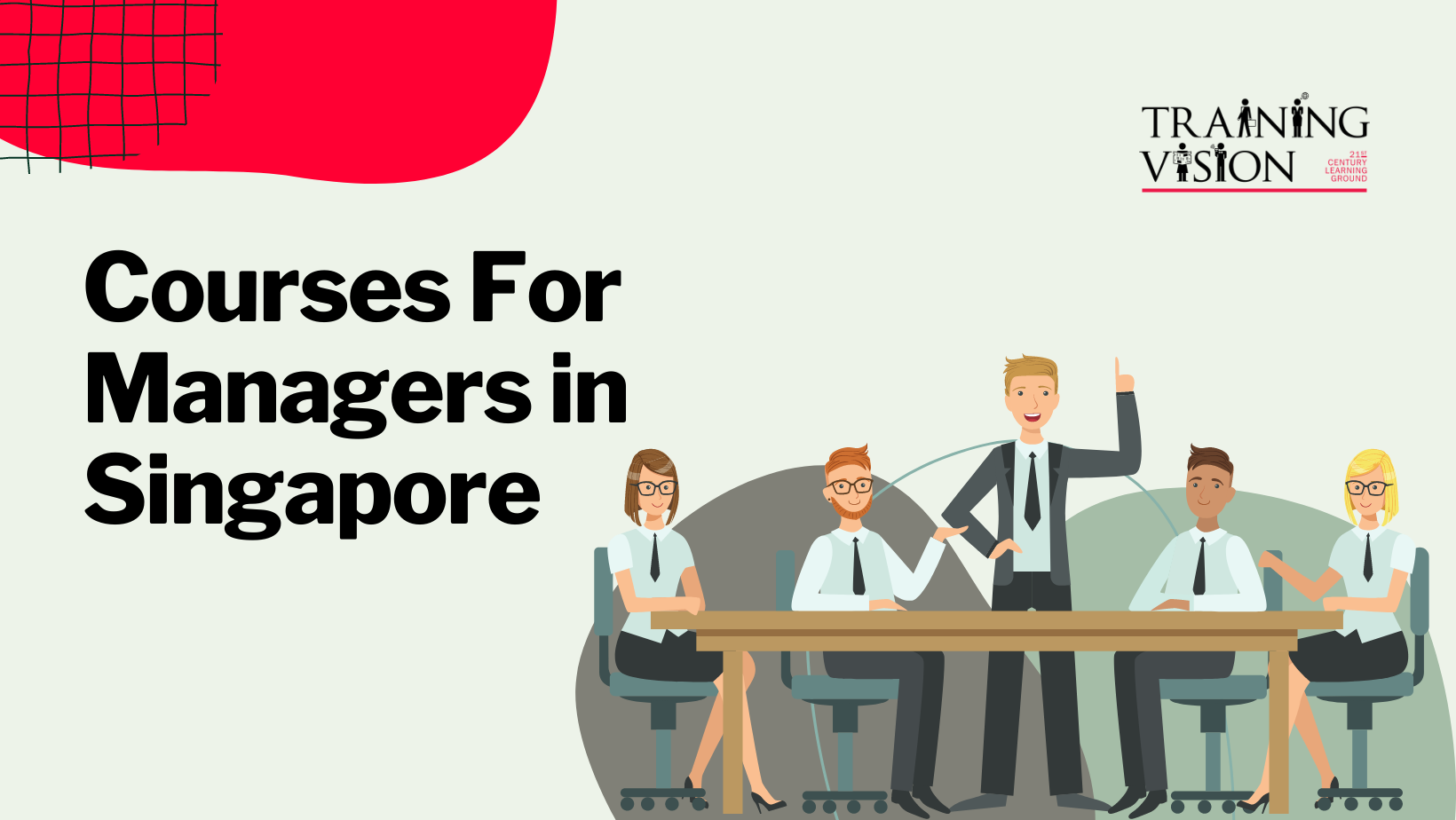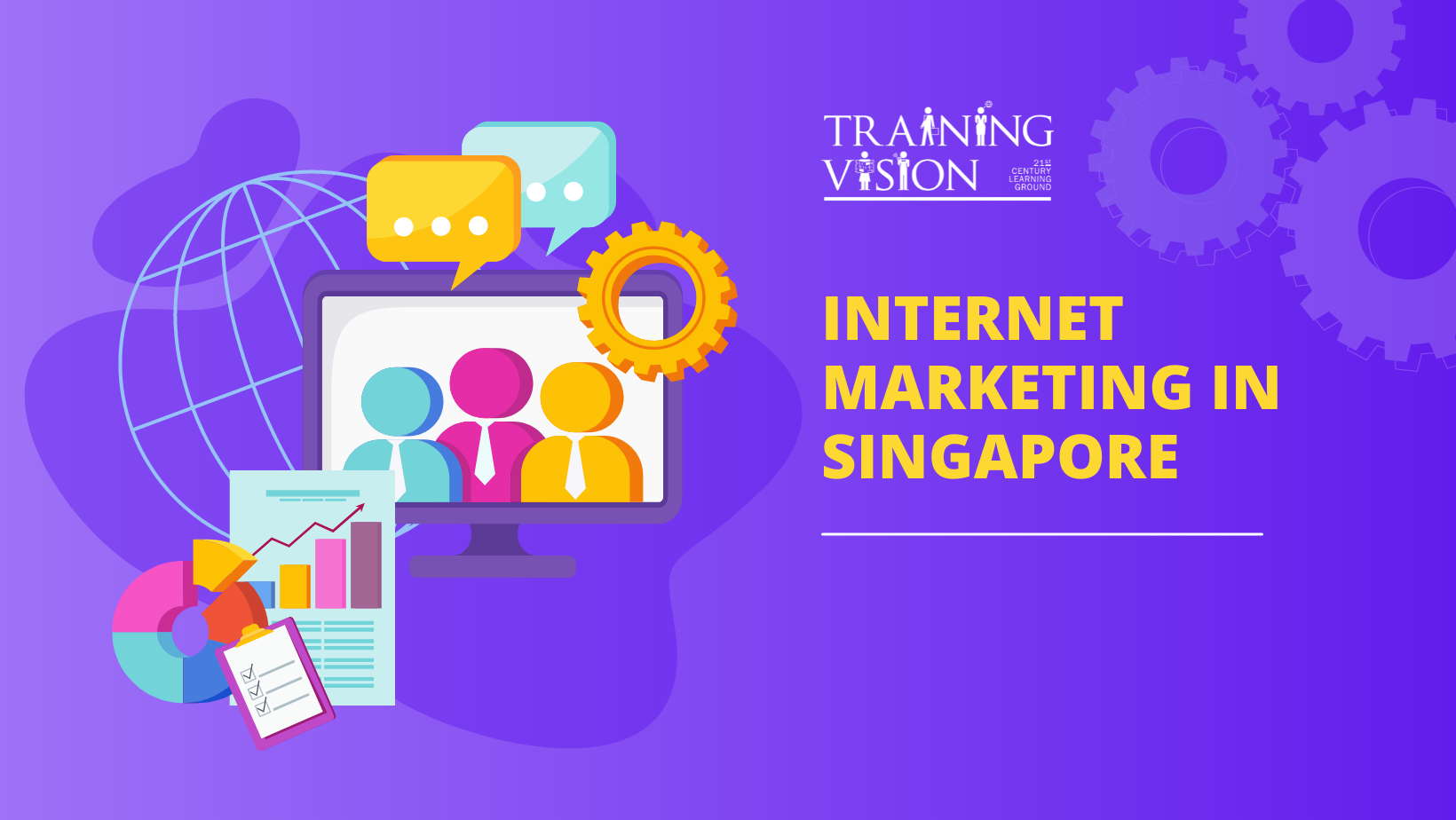
Finding your ideal job or what you want to accomplish is not always easy. We all have dream occupations when we are young (or even a little older), careers that we believe would be ideal for us and result in a successful path. Contrary to popular belief, many professions are substantially different in reality.
Today’s workforce is more qualified and skilled than ever. It can be challenging to land a job if you can’t demonstrate that you have any qualifications or skills because businesses have a broader pool of people to pick from.
In this blog, we’ll give you some tips to assess the kind of work-life you envision.
Others opt to devote their entire working lives to their passions, while some people choose to pursue them in their spare time. Work can become less of a chore and more of a gratifying and fulfilling way when you are enthusiastic about what you do. Finding a healthy work/life balance requires that you are content with your employment decision. It’s never too late or too early to discover and pursue your actual passions, regardless of how recently you’ve begun to consider your career or how stuck you feel in a job that doesn’t make you happy. Discovering your passion may help you determine your desired salary level, benefits, and other factors.
You may try to explore Training Vision Institute programme offerings and start by taking up a diploma of your desired course.
Think about your strengths. Identifying both your soft and hard skills that will eventually direct you to specific interests. Or you might want to assess yourself and think of your natural talents that inspire and motivates you to complete particular tasks.
Spend some time searching various careers once you’ve determined a few areas of interest. You might be able to identify occupations that you are naturally drawn to by reading job descriptions. If you discovered that your current job is not something you want to pursue, you may still apply or enroll in courses that offer basics, fundamentals, and certifications that can help you with your career switch and start your new journey right away. Training Vision Institute offers programmes that can be completed in less than 12 months. From digital marketing, service management, leadership and people management, service leadership, and others. (insert link)
Working doesn’t preclude learning. Learning is endless and there are lots of opportunities for you to learn something new, so make the most out of any chances you get. Keep in mind that even abilities that don’t appear relevant right now might later prove useful. Training Vision Institute offers online and blended learning that you might want to try. Online learning is proven to be convenient and here’s why.
Although it’s fantastic to work in a field you find interesting, the most crucial thing is to make sure that your daily life is what you want it to be and that it suits your needs.

You may have heard the phrase “You can be anything you want to be.” But there are some things that you need to know before you can take this advice.
For example, you need to have a job in your field of interest but you also need to receive training from an organization that has experience and expertise in that particular field.
Job seekers are often asked to provide proof of their qualifications. One of the competitive advantages of landing a high-paying position at a respectable company is a diploma. With more employers demanding that employees should possess specific skills and experience, it’s important to know what your own strengths are and how to apply them in the job market.
This is where Training Vision Institute comes in. We offer diplomas for people who want to advance their careers in digital marketing, service management, leadership and people management, service leadership, etc. These diplomas can guide you toward your desired career progression and help you land a job after completion. In addition to preparing students for their chosen careers, they also help them gain valuable and relevant skills that can help them succeed in their respective fields of interest. Enrolling with Training Vision Institute will provide the benefit of collaborative learning from industry professionals with decades of experience.
When considering long-term goals, career-wise, getting a diploma will be a smart investment because the benefits outweigh the drawbacks. Once you have earned the diploma, you can impress your employer by showing them proof that you have what it takes to be an excellent employee by demonstrating your enthusiasm, and skills and showing them how well you fit with the company culture.
When applying for jobs, it is important to provide proof of your qualifications. The proof is something that shows you have what it takes to do the job. It can be in the form of a resume or CV (curriculum vitae), but it should also include any relevant certificates or licenses as well as proof of education and experience.
The key is to make sure your resume gets noticed by employers and helps them see that you have what it takes. A good resume should be clear, concise and focused on the skills and experience that make you unique.
Here are three tips to help you land and ace a job interview:
1) Make it easy for employers to contact you.
2) Show how you can contribute to the company through your experience and education.
3) Be professional during the entire process, dress appropriately, and maintain good communication with your interviewer. Remember that each interviewer has their own style so it’s important that you adapt accordingly to theirs.
4) Don’t forget to highlight your achievements.
Training Vision Institute can assist you in obtaining your desired diploma and can help you stand against the competition. With the help of our curriculum, you’ll be ready to land the job of your dreams and perhaps get your desired salary. Visit (link) today and start your career right away.
The world of work is changing, and so must the way you prepare for a career.

Everyone wants to get ahead in life, especially in their career, and there’s no better way than getting a diploma.
The world is changing. The digital age has become one of the most essential aspects of our lives. It has affected almost everything; from the way we think to how we make decisions.
We have come to a point where the use of technology has become inevitable and it is impossible to live without it.
Diplomas in digital marketing and leadership courses are a trend nowadays and these courses can be a stepping stone to your career progression. Many employers are hiring graduates with diplomas in digital marketing and leadership courses because they have a good understanding of how modern practices work, how to use them, and where it is heading. They also understand how this knowledge can help them solve problems and make their company more competitive in the marketplace.
We all know that education is important. It can be the key to success in life. The question is, what kind of education would you like?
Well, there are many options out there and you need to determine what suits your personality and career aspirations.
Here are some courses that can help you improve your career chances:
This course is a must-have for any marketing professional. It will equip you with the skills required to become an effective marketer and will help you develop a strong understanding of digital marketing. You will learn how to create content that drives engagement, how to use social media effectively, and how to devise an integrated marketing strategy. A diploma in digital marketing is a great way to start your career as a marketer, or if you already have experience in this field, it will help you improve your skills and knowledge base.
These programmes are designed specifically for professionals who want to be effective leaders in their organizations. It teaches you how to develop leadership skills through experiential learning which enables you to lead teams more effectively at work. The certificate also focuses on building strong communication skills which are essential when managing team members and establishing clear goals for them within the organization.
After completing these courses, you will find yourself as one of the marketers and leaders of tomorrow who can be able to transform organizations, enhance value creation and create efficiencies. It provides a field-specific curriculum with the goal of giving you the knowledge and abilities needed to be successful in your chosen field. Additionally, these courses can also be a stepping stone towards a higher career progression and educational attainment.

Many businesses search for people that have a specific level of training or education when hiring a specific position in a job field. You can receive relevant training by completing a diploma or degree programme. Depending on your resources and the kind of career you wish to pursue, you may decide to seek a diploma rather than a degree.
In this blog, we will tackle the difference between a diploma and a degree so you can decide which will be the most advantageous and will lead you to your desired course.
A diploma is a certification that you have finished the required training and modules for a particular course. The majority of diploma programmes train participants for skill-based jobs and these are awarded for in-depth and specific coursework that is more specialized than a certification.
A diploma might help you grow in your profession or get employment in your chosen field. Additionally, you could obtain a diploma to support your present degree or as part of your preparation for an associate’s or bachelor’s degree.
Diplomas are hands-on and provide tailored coursework for the specific course you’re earning. They are practical.
Pros:
Cons:
After completing several years of education in a particular field, you are awarded a degree. Obtaining a bachelor’s degree is a way for students to stand out from others in a highly competitive job market.
To help you understand more, here are some pros and cons of having a degree:
Pros:
Cons:
The time and expense required to complete certificate and degree programmes differ typically. The number of required courses and the amount of knowledge gained vary amongst them as well.
You might be asking, what is the best for me? Which should I consider? Depending on your career objectives and exceptional circumstances, this is genuinely subjective. Before choosing your path, you should take the following factors into account:
You will be one step closer to success regardless of the type of further education you choose to pursue. Everybody has various objectives. To choose the educational path that best meets your goals, it’s best to have choices to select from diplomas, degrees, and online degrees.

The emerging technologies and digitalisation have caused the nature of work to change rapidly. The rise of automation, as well as artificial intelligence, have effectively transformed workplaces into something that we could have just imagined a few years ago. Although there is no exact effect identified in these significant changes in the way we work, the skills that businesses require from their people are definitely changing. The skills we thought we do not need in the workplace are suddenly in demand, and the skills we taught ourselves so hard years ago are becoming more and more irrelevant. Employers struggle to hire people that are appropriately trained because of skills mismatch.
International Labour Organization defines skills mismatch as a discrepancy between the skills that are sought by employers and the skills that are possessed by individuals. When the skills of the individuals and the jobs offered by companies do not match, this indicates that either the economy is not producing employment that matches people’s skills or that education and training are not producing the skills needed in the workforce.
According to a poll conducted by the National Trades Union Congress (NTUC) in collaboration with NTUC LearningHub, 63 per cent of company leaders in Singapore believe that skills mismatches continue to be the most common type of mismatch. This is in comparison to experience mismatch (18%), wages mismatch (17%) and expectations mismatch (2%).
The common misconception about skills mismatch that businesses need to deal with is the lack of technical or hard skills (e.g. coding, digital skills, cybersecurity, etc.). What many people do not realise is that there is also a major gap in soft skills, including leadership. In fact, almost three out of four companies claim that it is difficult for them to find college graduates who possess the soft skills they require. The fact that 91 per cent of talent acquisition experts believe soft skills will be crucial in the future raises warning bells.
Over the coming years, the following skills gaps are some of the most significant ones:
Skills mismatch comes in different forms – its prevalence could mean that most of us are affected by it and we are unaware of it. Here are the most common types of skills mismatch.
#1: Overskilling
When a worker thinks they have more skills than they actually do, or they have more expertise than what is required by their current position, it is referred to as overskilling.
#2: Underskilling
Under skilling, on the other hand, refers to the circumstance wherein the employee feels that the job’s requirements are not met by their existing skill set.
#3: Horizontal mismatch
Horizontal mismatch usually happens to fresh graduates, and it occurs when their chosen profession is unrelated to their primary course of study.
#4: Skill Obsolescence
This type of skills mismatch happens when the skills of the workers become obsolete. Skill obsolescence happens due to ageing which reduces the value of some manual skills caused by economic or technological development. This renders some skills unnecessary or unutilised.
#5: Skill gaps
This is the degree to which employees lack the abilities required to execute their current job. It is similar to underskilling to some extent, it’s just that skills gaps happen in the employer level while underskilling takes place at a firm level.
#6: Skill Shortages
Skill shortages occur because of empty or difficult to fill positions that have resulted from a lack of eligible applicants for open positions.
It is possible for different kinds of mismatch to coexist, such as when someone is both overqualified and underskilled. This frequently occurs when the field of education does not match the field of employment.
Skills mismatch can affect us in so many ways. In fact, if you dread going to work this morning, that could be a sign that you are in a skills mismatch. Here are some of the ways it can affect you and your work performance.
1. Abuse of Salary in the Available Labour Market
It began with a new task here and an added obligation there. You will soon discover that you are doing more than just your regular job. However, your pay has strangely remained the same. According to each employment level, there are associated duties and pay. You are not being paid fairly if you are working above what you first agreed to. You may already be performing the duties of two or three persons.
2. Underutilisation of Your Actual Experience or Education
Some degree holders find themselves in positions for which they are either overqualified or underqualified. Because of this, they are left with an uncertain work future. You might find yourself in this situation when your job doesn’t make the most of the degree you paid for and spent a number of years learning. The uncertainty and the nagging feeling that you could actually do more than what you are currently doing subconsciously affects your work productivity and even your overall performance.
3. Settling for Part-time When You Can Be Doing Full-Time
There is nothing wrong with being a part-time worker. But if you work part-time and have a background in a highly technical industry, you might be experiencing a mismatch. Your professional experiences should broaden your knowledge. However, you are being taken advantage of if you are not given the time to do so. This impedes your growth and skill development.
4. Happiness, Fulfilment and Satisfaction Are Missing
This might seem intangible, and even irrelevant to some, but these hugely affect your overall performance at work. You’d barely produce a quality output if you are not happy with what you are doing – unfulfilled and unsatisfied. In the end, you’ll just do half-baked work which can be improved if only you have the right skills for the right job.
Skills mismatch can cost employers and firms a lot. While mismatched employees may have issues in their work productivity and performance, the entire business can be affected if they have a number of employees who do not have the right skills for the job.
When there is a skill mismatch, it can affect the business in several ways.
1. Increased employee engagement and dissatisfaction
While this can be at the employee level, it can become a company-wide problem if there’s a significant number of employees that are unhappy with their current jobs. May it be because of lack of opportunity for self-development or simply the lack of job offerings that match their skills, if they are unhappy and unproductive, they can affect the overall productivity of the business.
2. It can be a cause of delay in goals and milestones
Unhappy employees are unproductive, and when they are underskilled, they deliver half-baked outputs. If the company has a target deadline or a milestone to achieve, that can be delayed because the workers do not have the right skill to execute a project. It can be delayed because the people working on it are less motivated and would rather be somewhere else.
3. Disgruntled Clients and Loss of Customers
Underqualified and untrained employees often lack the skills to do basic customer service. In this day and age where companies are expected to be customer-centric, businesses that do not have skilled customer service personnel could lose potential customers and could even produce disgruntled clients as a result of poor work quality.
4. Loss of Opportunity and Wastage of Company Resources
The company might want to introduce a new product or service, but underskilled workers can ultimately delay this, and even prevent the business from ever moving forward. There are a lot of opportunities that both the company and the employees could be missing just because they are trying to work on something that doesn’t fit at all.
Skills mismatch can cause many inconveniences and even disillusionment, but there are things we can do to avoid it, and even shift if we feel like we are trapped in this situation. Here are some things we can do.
For Individuals:
1. Choose the right degree
Make sure the degree you get is tailored for the career you want to pursue if you don’t want to end up at the wrong desk. You will need to study more diligently because these degrees are some of the hardest.
2. Stay Up to Date
It’s acceptable if not all of us are intelligent enough for seven years of medical school. If you want to prevent employment mismatch but don’t want to be a doctor or lawyer, all hope is not lost. If you follow current developments in the economy, you can make a good degree decision.
3. Use Online Courses
One of the freedoms the internet has given us is the ability to retrain while continuing to work and earn money. Online courses can assist us in developing new talents or honing those we already have so we can use them in a freelance career.
One of the best ways to find something that you enjoy is to become self-employed, but be ready to put in a lot of effort in the beginning.
For Businesses:
1. Write clear job descriptions that detail the skills needed.
The hiring procedure is guided by the job descriptions provided. They let potential candidates know what level of competence you’re searching for so they can apply for the position. In order to ensure that your candidate pool has the proper competencies, job descriptions are essential.
2. Streamline your online candidate search to uncover more promising candidates.
Nowadays, posting jobs online is by far the most efficient approach to finding candidates. It still isn’t simple, though. You must find a strategy to differentiate yourself from the competition because many of your rivals are also looking for talented applicants in your field.
Include a thorough job description that outlines the degree of expertise and experience you require. By doing this, you can avoid having to sift through blatant mismatches and ensure that your application pool filters itself.
3. Use skills evaluations to get rid of skills mismatch.
Assessments of skills can take many different forms, including simple test questions, comprehensive test projects, and even job simulation activities. However, nothing works better for the first screening phase than skills testing. You can rank candidates swiftly and objectively using online exams developed by subject matter experts, thereby removing skill mismatches.
4. Outsource to address the skills gap in your area.
Regional skill shortages are possible. Fewer people may be able to provide the necessary abilities when certain employment emerges in some regions of the world because of either exceptionally high demand or a low supply.
Most of us need to work, and it’s admirable to work a job you don’t particularly enjoy in order to maintain your employment. But it’s best to avoid job mismatch whenever you can for your own personal satisfaction (and to prevent burnout).
Increase your potential to land the job you want and follow the career path of your choice. Training Vision Institute offers self-development courses and programmes for higher learning that are up-to-date and can easily be transferred to the workplace.
Take charge of your upskilling and reskilling and avoid landing on the wrong desk. Check out our programmes and sign up for the one that suits you best!

Many of us have switched to remote learning ever since the pandemic happened. Studying online is a great way to earn your degree or diploma, and it can also help you stay on top of your work or studies. Online courses offer the opportunity to learn at your own level and offer many more benefits than traditional classroom learning does. Here are some of the key benefits:
Online courses are flexible, so you can fit them into your busy schedule. You’re free to choose when and where you study, so if the thought of going to class on Monday morning sounds like torture, then moving those classes to some convenient time might be just what you need. You can complete the course at your own pace and at any time of the day or night.
The online learning model allows flexibility in the curriculum and workload. This means that students can complete their courses in no time than they would if they were studying in person on campus. Some programmes even allow you to complete a full-time course while working full-time.
Online learning is often interactive and resources are mostly online, so it’s easier to remember concepts and information that you’ve been taught by using these resources. Online courses also allow students access to technology – including smartphones and tablets – which gives them an added advantage over their peers who may not have access to such resources at home.
Online learning gives students the opportunity to fast-track their learning in a shorter and more convenient way. This means you can get on with your life while gaining the skills you need for career advancement. Studying online is also advantageous because you don’t have to travel anywhere or logistically prepare for an exam. You can just sit down at home and get started right away!
It will also let you take charge of your learning experience. Online courses allow you to find the right balance of convenience and flexibility for your personal learning style. You can work around your schedule and make sure that everything fits into your daily routine — including work, family commitments, and other life events.
It allows you to ask questions on forums or in interactive sessions. It’s easy to connect with other students who have similar interests and goals as you do by attending a class where you can talk with them and with the trainers about their experiences or share tips on how they have used online learning tools to help them succeed in their studies.
Try out Training Vision Institute’s Professional Diploma in Digital Marketing & Campaign Strategy, it’s 100% online. Connect with new opportunities and networks around the world. With realistic courses to case studies delivered by professional trainers with decades of experience, you’ll surely relate to your current work environment even if you’re studying online.

Continuous learning and developing skills are important regardless of your experience level. Granted, your skills naturally develop throughout your career, but what if it’s time for you to level up? What if you are eventually given the opportunity to manage a team? How are you going to measure your effectiveness as a leader?
This is one of the major reasons why those who aspire to be leaders in their organisations should consider enrolling in leadership and people management course. While not everyone is born a leader, one can certainly be made. These management training courses are your pathway to success as a leader.
Leadership is a concept that is as old as time. In today’s business arena where everything changes almost overnight, leaders should be able to respond to challenges with strategy, wisdom, and expertise. The pandemic also taught us that businesses need leaders that have the skills to quickly adapt to changes and cultivate a culture of engagement and accountability among the team.
Here are the reasons why you should take a leadership course:
Improved communications skills. You might say that you already possess good skills for communication, but if you are going to be a leader, the concept of communication changes. When you are a leader, adapting to different communication styles is important because your team members communicate differently. Keep in mind that good communication within your team is an essential key to your success and your entire team.
It clarifies your vision as a leader. To be a successful leader, you must have a clear and sound vision of what you want to achieve for your team, and also for your organisation. Being in leadership training allows you to step back and see the bigger picture. What does your organisation look like in the future? What are the things about your team that you can work on?
Ensure you use the most effective leadership style. Not all leaders are made equal. There are leadership styles that are effective in certain industries but don’t just work in others. The leadership training will provide you with insights into which style suits your industry best. Remember, every leadership style has its sets of advantages and disadvantages. You would want to make sure that yours has a positive influence on your team.
It’ll teach you how to influence people. Leadership is also about influencing people—your ability to affect your team and change their attitude in a given direction is one way how to gauge your leadership. In leadership training, you will learn how to motivate people, how to distinguish the good and bad sources of power, and how to identify the strong methods of influence from the weak ones.
It’ll teach you new and valuable skills. Leadership required in the digital era is way too different from the leadership required in the traditional setting. Leadership training broadens your way of thinking which will help you come up with innovative and creative ways to solve a problem. The digital era presents various challenges that may only be overcome with the use of digital technology.
Now you might be wondering what kind of leadership training you need in your field of expertise. Training Vision Institute offers an array of leadership courses that will help you develop your skills as a leader.
#1. Leadership and People Management
Great leaders make all the difference when it comes to people management skills. While leaders must be able to perform their core responsibilities, their people management skill is equally important as it influences their team members’ motivation, as well as how people feel about their job.
A survey in 2020 says that 54% of employees in Singapore intend to stay in their jobs because their managers are effective in helping them resolve their work-related issues. Effective leaders are clearly a huge factor when it comes to company retention. This means the loyal employees are staying and wasted company resources are lessened.
Good leaders cultivate a culture of teamwork and positivity among their team members, create an exciting vision for employees, think long-term, take risks, and embrace changes. They also build interpersonal relationships and focus on their team members to get to know their strengths and weaknesses. They recognise the strengths of their teams and provide support for the weaknesses.
The Leadership and People Management course is designed in such a way that it achieves one simple goal—to produce leaders with a growth mindset. Whether you are currently a leader in your organisation or you are aspiring to be one, this course will provide you with insights into what it takes to be a leader in this era wherein so many changes have taken place, and are bound to take place in the future. It also explores a leadership development roadmap, from leading strategy development and implementation to guiding change in a diverse and fast-changing business environment.
People management is overlooked most of the time because many are under the impression that there are far more important things to focus on. While it is classified as a soft skill, it can make or break a team, and even an entire company in the process. Businesses that flourish have employees that are happy and positively motivated, all thanks to their leader with great people management skills who has compassion, enthusiasm, and appreciation for what they do.
Click this link to speak to one of our consultants on how to sign up for the Leadership and People Management course.
#2: Advanced Diploma in Service Management
The digital era has produced a business environment that has become too competitive that it created an evolved customer profile. The new customer-centric business economy no longer guarantees customer loyalty albeit the satisfaction they receive from a brand or a business.
While being a nice, polite, and out-of-the-box thinker during issue resolution can greatly improve your customer satisfaction ratings, these are also the tactics that your competitors must be doing. Service excellence is rooted in providers and their people who have the right mindset and attitude that make them capable to deliver unforgettable service to customers. All of these are also rooted in one major thing – excellent service leadership.
Customer service front liners need a leader who creates an environment that stimulates the right attitude, unbridles positivity, and upholds the highest levels of service standards. With this kind of leader, there is no doubt that customer service teams will go the extra mile and make each customer transaction remarkably different to make competition seem irrelevant.
Training Vision Institute’s Advanced Diploma in Service Management contains modules focused on service leadership, providing you with insights on how to be an effective leader in the service industry. Again, not all leaders are created equal, and different industries need different types of leadership approaches. Thus, this course is perfect for those who are in the businesses of food and beverage, tourism, retail, business services, communication, hospitality, and other businesses that provide direct service to customers. In this course, you will learn how to come up with innovative ways to provide excellent service and empower your people on how to give their best shot in doing customer service.
The effective delivery of service itself presents many challenges, and you can just imagine what it must look like to make it extra so that your customers’ experience becomes memorable. While it is easier to focus on the current trends and forget about the details of what works for your team and your organisation, these two essentially make all the difference.
If you want to know more about the course or if you wish to sign-up, click this link and speak to one of our academic consultants today.
#3: Graduate Diploma in Service Management
Digital transformation is here to stay, and if businesses must do something about it, it is to adapt and perhaps change their business models to make them work with digital technology.
The pandemic made us realise that we need business leaders who are willing to take risks and can adapt quickly to digital technology. We are in an era where change is inevitable, and we need a leader that makes us comfortable with change, no matter how disruptive.
This is what Graduate Diploma in Service Management is for.
Training Vision Institute’s Graduate Diploma in Service Management is designed for leaders and operation managers in the service industry who want to take their leadership skills to the next level. This course contains modules focused on developing the capabilities of C-suite leaders and provides insights into facilitating teams and project management in the digital age. It also includes developing digital strategies through the incorporation of social media campaigns and data analysis.
Digital technology is here to help us produce innovative ways to solve problems. Therefore, it is important that leaders, who oversee making major decisions in businesses, understand what digital transformation is all about, and how digital technology works. When leaders are confident in using digital technology, not only they are confident to digitalise their businesses, but also, their people will be comfortable amidst disruption.
Click this link to find out more about Graduate Diploma in Service Management and speak to one of our academic consultants.
Training, certifications and new learnings are not just for rookies and entry-level employees. Managers and business leaders also need training because while their experiences speak for their knowledge and wisdom, there are also things that need to be experienced outside their business realms. It is an opportunity for them to step out of their everyday responsibilities even for a moment, look at the entire picture of their business and identify what needs to be done and what needs to be worked on.
Invest in yourself. Click here and speak to one of our consultants to find out the right course for you.

Do Singaporeans love their jobs? Love comes in all forms, and self-love is something that deserves to be celebrated too. This also extends to the love you have for the things you do, including your job. On Valentine’s Day, we conducted a survey and asked the respondents if they love their job. Then we gave them a free eBook called Do You Love Your Job: A Guide to Finding The Job You Love. Today, we are going to show you the results.
Many people like their jobs for what it is worth—it can sustain their lifestyle, it is stable and easier to be just complacent, or maybe, there isn’t much of an option for them. While these are perfectly valid reasons to keep your job, it does not mean you need to live in frustration. You should be able to find joy in what you do because it also affects your job performance and your overall well-being.
The group of respondents consists of people from different industries—healthcare, service industry, education, and technology. Here are the questions that we asked them:
Q1: Do you love your job?
70% responded yes to this. A good number of people look like they are having the time of their lives—motivated, productive and inspired.
Q2: What will make you fall in love with your job?
We provided 4 options for the participants to choose from and here’s how they responded.
High Salary: 48%
Great Boss: 48%
Learning Opportunity: 81%
Career Pathway: 33%
Almost half of the participants revealed that they are most likely to fall in love with their job if they are being paid well and they have a great boss, while the career pathway appealed to roughly 3 out of ten participants. 8 out of 10 people though, revealed that they prefer learning opportunities in their current jobs.
Q3: What will make you hate your job?
Low Salary: 48%
Bad Bosses and Management: 59%
Slow Career Progression: 48%
No Learning Opportunities: 55%
It appears that there could be more reasons for a person to hate their jobs. Among our participants, almost half them revealed that they would hate their job for all the reasons given above.
Q4: Do you want to find a career that you love?
8 out of 10 revealed that they want to find a career that they love. Does this mean that they already found the job of their dreams, based on their answer to the first question? Or do the results to the first question suggest that perhaps they are happy with their jobs because it is easier to love a job that makes them feel stable?
After evaluating the results of our survey, we concluded that:
Based on these conclusions, we’ve come up with these suggestions:
Falling in love with your job should be easy. You do not have to be frustrated all the time, wondering when you are going to be complacent with the job that gives you stability but keeps you wondering if this is all you can have in life. Self-satisfaction and a sense of fulfilment are just two of the many things that a career you love can offer. It can also make you motivated, inspired, and up for the challenge of trying out new things.
Training Vision Institute provides learning programmes that will equip you with the necessary skills needed in today’s economy. We offer higher education courses in cybersecurity, digital marketing, and leadership, as well as self-development courses.
Click here to get in touch with our consultants and let us help you find your best skills match.

Internet marketing has become more popular than ever, with most brands working on their online presence to keep their relevance and also to keep in touch with their consumers. There are 5.45 million internet users in Singapore in January of this year—a whopping 92% of the entire population. If there is one thing that companies can hugely benefit from, it’s their online presence. After all, judging by its number of users, the internet is the best platform out there to showcase your products and services.
Internet is an all-encompassing entity—anyone can put videos, blogs, images, and other types of content on it for various purposes. With the number of people and businesses that are using the internet, you might be wondering how you can make your brand recognised by the right audience.
This is where internet marketing takes place.
Marketing has always been about reaching out to your consumers and informing them about the products and services you offer. Print advertisements, billboards, and TV commercials are created for this purpose. Internet marketing is pretty much the same thing, except that you use digital media to reach your audience and tell them about your brand. Simply put, the internet, along with the smartphones that most people use these days, is your tool to connect with your customers, tell them about your brand, and lure them to purchase your products.
At some point, we also call it digital marketing.
What’s good about the internet is it offers distinct advantages that other platforms cannot simply provide. It has a wide scope of reach, it gives an option to create personalised content, the opportunity to build personal connections with your customers, and for the most part, it is cost-effective. Businesses rely on the internet to boost their brands and no doubt that you need it too, for the success of your business in the coming years.
Internet marketing or digital marketing usually includes the process of understanding your target audience, doing substantial steps to create meaningful connections with them, and finally working to maintain this connection. Then you just repeat the process to expand your reach. There are a number of ways how to connect with your customers—the internet offers numerous options on this. In Singapore, this is how you conduct internet marketing:
Step #1: Define your user personas
Digital marketing success begins with being able to define your right target audience. Thus, the first thing you should do is to know the people with whom you are going to market your business. Your potential customers are out there—you just have to identify who they are exactly so that you know how you would communicate with them in ways that they would be interested in. You can do this by conducting surveys and interviews. You may want to ask them the following:
Your questions might slightly be different from these depending on the products and services you offer but this data should be able to give you the idea of which marketing channel works best for your target audience.
Step #2: Competitor analysis and SWOT analysis
It is crucial to know more about the brands you are competing with. It helps you evaluate your own brand and identify your competitive advantage over them. You can ask your target audience about your potential competitors during your survey. From there, you can analyse them and work on your brand’s distinct selling points.
Step #3: Identify your marketing goals
Just like all the other campaigns, your digital marketing efforts should gear toward a certain goal (or goals). These goals vary depending on what your brand needs and wants. To determine your goal, you need to ask yourself if you want to:
Goals are important because they will help you establish the framework of your campaign. Just make sure that your goals are realistic and achievable within a given timeframe.
Step #4: Decide on the marketing channels you will use
Internet marketing provides a variety of ways when it comes to communicating with your customers. The marketing goals you’ve set will help you decide which channel suits the best for your brand. For example, if you want to generate more traffic on your website, you can focus on email marketing or producing useful and relevant blog posts. If you want to increase the number of engagements on your social medial pages, then you should strategise on social media marketing.
Step #5: Start working
Now you’ve reached the most exciting part—the execution of your campaign. This is the stage where you produce the collaterals and other materials needed for your digital marketing campaign.
If there is one place where you can do practically everything, it’s the internet. You can communicate with both friends and strangers, showcase your talents, and of course, you can tell people about your business and the products you offer. There are also several ways how you can do internet marketing, and these are the most popular ones:
#1: Search Engine Optimisation (SEO) and Search Engine Marketing (SEM)
SEO is considered one of the pillars of digital marketing. Search engine optimisation fundamentally means working on your web pages so that it organically appears on Google when a user searches for a topic relevant to your content. This strategy needs a little more time and effort but can provide amazing results. Search engine marketing, on the other hand, is paid listings that drive traffic to your site.
Many people think that content marketing is essentially just any form of marketing. This perception is easily made because it can be in a form of blogs, videos, infographics, and even podcasts. However, its distinct feature is that it gives you the freedom to explore the possibilities of adding value to the lives of your consumers through content. This is how personal connections and far-reaching relationships are created between your brand and your consumers.
Social media marketing is pretty straightforward, and this is the type of internet marketing that everyone knows about. There’s hardly anyone who hasn’t seen the word “Sponsored” in their Instagram feed these days. With approximately 5.33 million social media users in Singapore, there’s no wonder that it is the best platform for advertisers to engage and communicate with their audience.
#4: Email Marketing
Email marketing has been there ever since internet marketing existed. It may be as old as time, but it still remains one of the most effective ways in driving website traffic through your links and informing your customers about your products and services. Many people these days still feel emails are personal, so this strategy also works best if you want to establish a certain connection with your audience.
#5: Affiliate Marketing
If you’ve seen social media influencers who provide links of where to buy the things they used in their content (not necessarily promoting them), that must be affiliate marketing. Basically, the influencers will receive a small commission each time a user clicks on their link and purchase a product through that link.
With almost the entire population using the internet, we have entered the era where businesses in Singapore need to invest in digital marketing to make their brands known and stay relevant. Keep in mind though, that successful internet marketing happens when you conduct thorough market research and competitor analysis. Focus on the strengths and the potential of your brand—identify its unique selling points and distinct qualities that your potential customers will consider. The results of your research, along with your marketing goals are what will determine the most effective marketing channel for your business. From there, you can come up with your content strategy, and execute from there.
The digital economy continues to grow and evolve, and therefore it is safe to say that digital transformation holds the future.
Equip yourself with an in-depth understanding of the fundamentals of digital marketing by signing up for the Professional Diploma in Digital Marketing and Campaign Strategy. This programme consists of modules that provide the essential knowledge on the pillars of digital marketing—SEO, SEM, content strategy, social media marketing, and more. Click here to talk to one of our consultants today and learn more about the class schedule and available subsidies.
Curious about the possible jobs where you can apply these skills? Check out the digital marketing jobs in Singapore right here.
Take ownership of your life-long learning and sign-up for one of our courses today!

One of the basic problems of students is planning out their daily schedules. Study habits tend to be a challenge to establish because most of us believe that it depends upon the person. It is a personal decision to make and students do not have the same time that is favourable to their productivity. There are students who prefer to study early in the morning and there are those who are keener to study at night.
As challenging as it is, there are students who are also having a hard time finding out which is the best time for them to study. While there are some who would just shrug it off and would choose to study whenever they feel like it, having a fixed schedule for studying will definitely help you make the most out of your studies and also of your time.
Science has proven that a person’s critical thinking and analytical skills are more effective between 2 PM to 5 PM. It is said that during these times, the brain can be very proficient at assimilating and processing any new information it acquired. With that being said, you might think that those times are the most effective way of studying since it is backed by science. You’d be surprised to know that’s not always the case. Different students prefer to study at different times of the day and still yield favourable results.
Studying in the morning
Most students across the globe are keen to wake up early in the morning and study after they finish their daily morning routine. In fact, there are those who include studying in their morning routine. Fresh from good night’s sleep, the brain is refreshed and therefore can absorb more information. Here are some of the benefits of studying in the morning:
Studying in the afternoon
Afternoon studies are excellent for some students, as they can take advantage of the science of time mentioned above. It is during this time that the brain is also quite active and more efficient at integrating the new information it receives with the information that it already knows. The biggest advantage of this for students who prefer to study in the afternoon is that they can easily make sense of the information they learned previously.
Another advantage of studying in the afternoon is that help is available whenever you get stuck in the middle of your study session. There might be questions that you’d encounter along the way, and your trainers and professors are available to answer them.
Studying at night
Ah the night learners, a.k.a. The Night Owls. The only disadvantage of the night schedule is sleep disruption, and with that aside, a lot of students are at their full potential at night. There are lots of advantages that studying at night. There is more peace and quiet during the night when most people are asleep, and therefore there are minimal distractions. The mind is also clearer in the evenings for creative thinking plus, sleeping after studying can help consolidate information and improve recall.
Science has also suggested that studying at the time when you are the most tired helps the brain retain a higher concentration of new skills (e.g. speaking a foreign language, using Adobe Photoshop, etc.). It is called sleep-learning, and this happens during slow-wave sleep when the process of memory consolidation is at its best and the brain is receiving the restoration and reactivation it needs while it rests.
So, can you learn anything while you sleep? The simple answer is yes.
Different times of study present different benefits. Your memory, alertness, and critical thinking skills can be at different levels during the day, and clearly, the best time to do it depends on your lifestyle, and also the nature of your learning. If you do not have a schedule for study time yet, or you are still trying to find out which is the best time to study, you may want to try studying at different schedules and see which one is best for you. Once you find it out, stick to it because consistency can also help your mind and your body adapt to the routine and be in your best condition to study during your time schedule.
While finding your study schedule proves to be a challenge, studying efficiently can be more challenging. In this era of social media, you are presented with a lot of digital distractions that can take your concentration away from what you’re doing. So how can you maximise your study time? What can you do to study more effectively and efficiently?
Here are some tips backed by research!
Study less, learn more.
Your smartphone is a catalyst of distraction—it forces you to multitask between the things that are important and the things that you can actually do at a later time. Multitasking sounds like a formidable skill until you discover that it is not so efficient because while you switch from one task to another, your brain needs to restart and refocus. There is so much time wasted.
Imagine, if you allotted yourself 3 hours to study but you check your social media and chat with your friends every so often during that period, your actual study time is not 3 hours, but less. The amount of work you could have accomplished in 3 hours have you been focusing on just one task is not the same as the amount of work you accomplished while working with other things.
Therefore, to maximise your study time, avoid multitasking and spend fewer hours studying. Study for shorter periods but with higher intensity.
Forget your old learning techniques—most of them are ineffective.
There are study habits that students have been doing ever since the beginning of time that take a lot of time but are ineffective. If you are studying for long periods of time, reading and rereading, or reviewing your notes, you have to stop them right now. They prove to be just an illusion of mastery—it makes you familiar with the ideas and information but they are not designed for long-term learning and so you forget them a week later.
Perform pre-testing.
Practice answering questions. Even if you do it incorrectly prior to learning the content, your future learning is enhanced. Research shows that doing a pre-testing can lead to stronger memory than spending the amount of time studying.
Colour-coded notes.
TikTok is packed with tutorials and demo videos on effective ways to study, and you’ll notice that most of these young students are using colour-coded notes in their calligraphic handwriting. Well, you do not need to have good handwriting for this, but you might want to get yourself a nice set of highlighters or coloured pens and sticky notepads. A recent study concluded that colours can improve your memory performance, and the same study also showed that warm colours (e.g. red, yellow) can create a positive and motivating learning environment and it can help you to have a positive perception of the content and interact more with your learning materials.
Not sure how to colour your notes? You can use the following guidelines:
This way, it’ll be easier for you to see which information is important, plus you can have a more organised (and somewhat aesthetic) notebook.
Exercise before studying
Increased energy levels are proven to kick-start your brain function which helps in improving your memory and cognitive performance. You won’t always be in the mood to study—sometimes it will be hard to find the motivation to do so. It happens to everyone, and while it’s okay to feel slumped sometimes, you may want to find that motivation to continue your study habits. Consider adding exercise habits to your study routine. It can be a 20-minute workout at home, brisk walking around the neighbourhood and just about anything physical that can get your heart rate pumping.
This habit can also help release endorphins (the happy hormones) which can improve your mood and reduce stress levels.
No one wants to spend all of their time studying. Therefore, you should learn techniques that can effectively help maximise your study time. Establishing a study routine sounds like a boring task, but with the tips mentioned above, you can have a meaningful (and perhaps a more fun way) of studying and acquiring information.
So, create a study routine, stick to it, get enough sleep, and do not forget to be kind to yourself as well. At the end of the day, your well-being is also important and being hard on yourself won’t allow you to accomplish anything.
Make the most out of your study habits and sign-up for one of our courses.
Acquire the relevant skills and knowledge in SEO, SEM, content marketing, data analytics and customer management by signing up for Professional Diploma in Digital Marketing and Campaign Strategy. We are in partnership with DMI (Digital Marketing Institute), a global leader in digital marketing courses.
You can also sign-up for our Advanced Diploma in Cyber Security (ADCS) if you are computer and tech-savvy. Earn a deep understanding of cyber security and boost your technical foundation. In partnership with EC-Council, this course will also allow you to gain EC-Council certifications upon completion of the programme and passing the certification exams.
Are you about to take the next step of your career ladder but not quite sure how to become a good leader? Our Leadership and People Management programme will equip you with the right skills and enhance your leadership capabilities. This course provides a leadership development roadmap best for those who aspire to assume leadership roles.